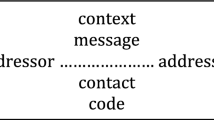Abstract
In order to clarify the relationship between morality and law, it is necessary to define both concepts precisely. Cultural realities refer to concepts which are more specifically defined if we focus towards the genealogy of those realities, that is to say, their motivation, function and aim. Should we start from legal anthropology, comparative law and history of law, law arises as a social technique which coactively imposes ways of solving conflicts, protecting fundamental values for a society's co-existence. Values subject to being protected are proposed by morality, the latter making subordination of law to morality inevitable. This explains that a great number of modern constitutions include a reference to fundamental moral values, that is to say, they have explicitly positivised moral contents. Legal reasoning, at all levels and expressions, needs to appeal to the aforementioned values. Constitutional reasoning, international law, legislative activity and judicial practice are studied to verify the latter. This subordination of law to morality sets out a serious problem: moralities are cultural realities which are only valid for a specific society. In order for law not to fall in a not very rational legal relativism, law should not be subordinated to morality, but to ethics, the latter understood as cross-cultural morality. The Universal Declaration of Human Rights was a step forward in this sense.
Similar content being viewed by others
Author information
Authors and Affiliations
Rights and permissions
About this article
Cite this article
Marina, J.A. Genealogy of Morality and Law. Ethical Theory and Moral Practice 3, 303–325 (2000). https://doi.org/10.1023/A:1009900103760
Issue Date:
DOI: https://doi.org/10.1023/A:1009900103760




